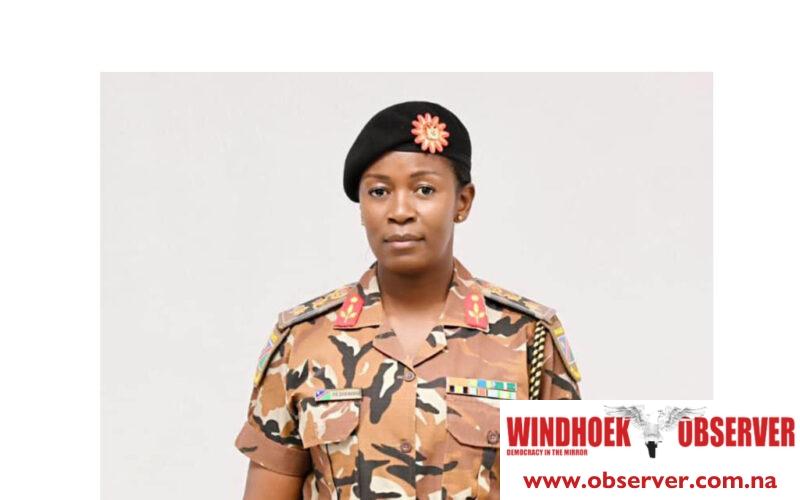Ester Mbathera
The Namibian Police’s national spokesperson, Deputy Commissioner, Kauna Shikwambi, urged the public to report known drug dealers and those involved in recruiting or trafficking young people into the drug trade.
Her call comes in response to the recent arrest of a 30-year-old Namibian woman at the OR Tambo International Airport in South Africa. The suspect was caught while attempting to smuggle drugs.
“Our message remains. The use, possession, and dealing of drugs are prohibited, illegal, and punishable by law. Let’s take the message across. Let’s continue to educate, especially our youth, who are desperate for money and addicted to drugs. Let’s help them, including those who are lured and recruited to be drug mules, risking their precious lives,” she said.
She said efforts to dismantle drug networks are ongoing, but because these are concealed crimes, the public needs to report those involved.
“So, we also depend on our sources, members of the public, to report all criminal activities to the police. Together, we are and will continue succeeding. Those known to be dealing in drugs and recruiting or trafficking our youth must be reported,” said Shikwambi.
She expressed disappointment in the public that sometimes thwarts police efforts to educate and deter them from using, possessing, and dealing drugs.
“On a monthly basis, we share those arrested, and that alone is supposed to be a deterrence. Disappointingly, Namibians continue to discard the caution because we are hooked on drugs while some think that it is a quick money-making scheme,” she said.
According to Shikwambi, the police can only educate in order to prevent drug use in Namibia; however, if someone does not comply and is found dealing, possessing, or using drugs, the law will take its course.
By Monday afternoon, the Namibian woman who was arrested in South Africa had excreted 68 bullet-like balloons filled with cocaine.
South African Police Service (SAPS) spokesperson Brigadier Athlenda Mathe confirmed this to the Windhoek Observer.
“Another medical examination/X-ray has confirmed that all drugs have been removed from the Namibian drug mule’s body. The drug mule has released 68 drug bullets from her body. The estimated weight of the drugs is 850 grams,” said Mathe.
She added that the suspect has been moved to a detention facility and is expected to appear in the Kempton Park Magistrate court on Wednesday, 25 September on a charge of dealing in drugs and drug possession.
Additional charges may be added at a later stage.
In an interview with SABC News, Mathe said the suspect booked a flight from Sao Paulo, Brazil, to South Africa, but it is unclear what her final destination is.
“Her final destination was South Africa. Our investigating team is busy with her. They are currently conducting interviews with her to get more information on her final destination,” said Mathe.
Mathe said the SAPS are working to establish who the suspect is working with or whether she belongs to a larger syndicate.
The Namibian woman is the tenth drug mule to be arrested at the same airport in the past two months.
The SAPS has collected more than N$30 million worth of drugs.
This is not the only port of entry that has registered a massive drug bust in that country.
Last week, four suspects were arrested for drug dealing, resulting in the confiscation of mandrax and dagga with an estimated value of N$14,925, as well as cash believed to be the proceeds of crimes at different ports of entry between Namibia and South Africa.
The Namibian Police and SAPS conducted a cross-border operation from 19 to 22 September 2024, during which they made the arrest.
This was to address the commission of cross-border related crimes, such as drugs, transportation of counterfeit goods, undocumented foreign nationals, contravention of the Immigration Act, and traffic violations at the borders of the two countries.
Colonel Cherelle Ehlers of the SAPS in the Northern Cape province said that these actions included visits and searches at liquor outlets, railway premises, mines, and hostels.
“High visibility borderline patrols were executed via air, water, vehicle, and foot patrols. Several vehicle checkpoints were established where 1 078 vehicles and 2 296 persons were stopped and searched. Luggage, passports, permits, and relevant travel documents were checked at the points. Several fines were issued to the value of R8 100 for violations, including failure to mark an animal and an array of traffic violations,” she said.




